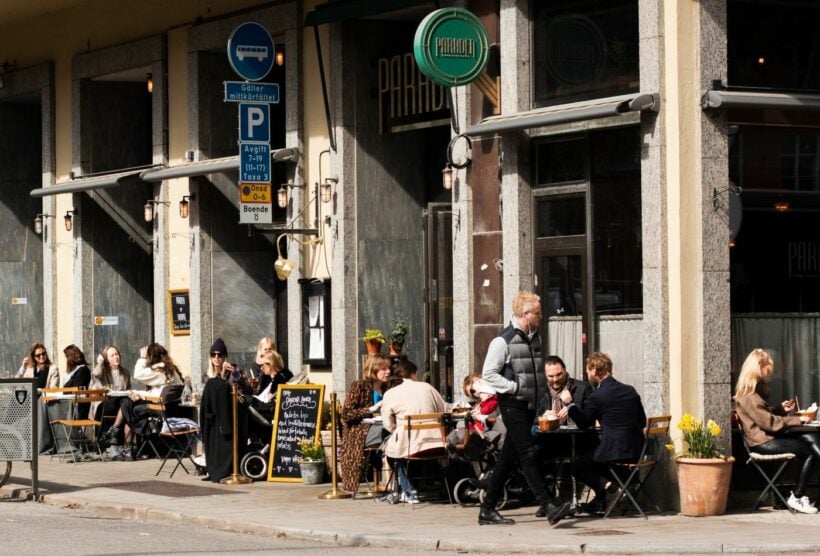Sweden’s massive public health gamble is failing

Whilst much of Europe, and the world, is currently in varying states of lockdown, one Scandanavian country has gone it alone with its own take on handling the Coronavirus pandemic. Sweden has no mandatory quarantines and relatively few limitations on moving around. Some schools remain open. Cafes, restaurants and shops, for the most part, remain open and stocked. Same with gyms and cinemas.
But the country is still making sure it is prepared to cope with its Covid-19 patients. Provisional intensive care units and temporary morgues have been set up in the Swedish capital to cope with emergency situations.
The Swedish PM Stefan Löfven is urging Swedes to apply “common sense.”
“Us adults need to be exactly that: adults. Not spread panic or rumours. No one is alone in this crisis, but each person carries a heavy responsibility.”
The Swedish example shows an alternative approach to measurement. Paul Franks and Peter Nilsson, both epidemiologists from Lund University, suggest that the government is taking a gamble on simulations made by the public health authorities.
“From these simulations, it is clear that the Swedish government anticipates far few hospitalisations per 100,000 of the population than predicted in other countries, including Norway, Denmark and the UK.”
The call for a community to simply take care and be careful with contacts with other people is a far cry from the draconian and authoritarian approach elsewhere in Europe and the UK where people have been ordered to stay at home unless they simply must go out for food shopping or some other urgent matter. Otherwise, STAY HOME.
Sounds tempting – keep your economy going whilst limiting the spread of the disease. Sweden has been the darling of the calls in the west to re-open economies and get back to work. At best, it’s been a risky policy, in contrast to the recommendations of the World Health Organisation and other science published on the spread of Covid-19. But has the bold health gamble worked?
No.
There is already enough data to suggest that a widespread laissez-faire is just a dangerous gamble with human life. Sweden is experiencing a higher death toll than its neighbouring countries. While the Scandinavian countries reported their first fatalities at roughly the same time, at the start of April Sweden had 239 fatalities, now they have 1,540, a 6-fold increase in just under 3 weeks. Meanwhile Denmark has had a 3-fold increase in deaths during they time and Norway 2-fold. In pure per capita terms, the three countries have around the same rate of total infections but Sweden’s mortality rate is much higher, and higher again compared to neighbouring Finland.
And whilst the curve of new infections is starting to flatten in Norway, Finland and Denmark, Sweden’s new infection rate is still rising at a faster rate than its neighbours.
There are now alarming reports, including in the Washington Post, that the virus has spread to one-third of nursing homes in the capital Stockholm, resulting in rising fatalities. There is also little indication that the Swedish economy has weathered the coronavirus economic storm any better than comparable countries.
The drop in the Swedish stock market and the rise in unemployment are approximately in line with other advanced economies. According to their own estimates, Sweden’s economists predict that their GDP is expected to contract by 3.4% in 2020, certainly better than the 5.5% average decline projected for the euro zone (dragged down by Italy and Spain), but a lot worse than the 2.9% decline projected for the US economy.
The laissez-faire policies don’t appear to have saved any lives at this stage, indeed statistically, have provided a worse outcome than their neighbours with much tighter controls. It has also shown that there is no country that can economically isolate themselves in a world economy connected with supply chains and a collective plunge in global confidence and demand.
Over recent months, Sweden has experienced a bizarre nationalistic campaign, supported by the authorities, called “public health nationalism” (folkhälsonationalism). Propagated in social media, it celebrates Sweden as an island of “common sense in a sea of panic” and “a resistance to science”.
This wave of cultural exceptionalism has apparently made Sweden well-equipped to manage the pandemic. So far the indications are that Sweden has done no better, in fact is now doing worse, than many of the countries it can be compared with.
Time may show that Sweden, in the midst of a global pandemic, has exhibited the poorest of timings to experiment with ‘folkhälsonationalism’.
Latest Thailand News
Follow The Thaiger on Google News:


























